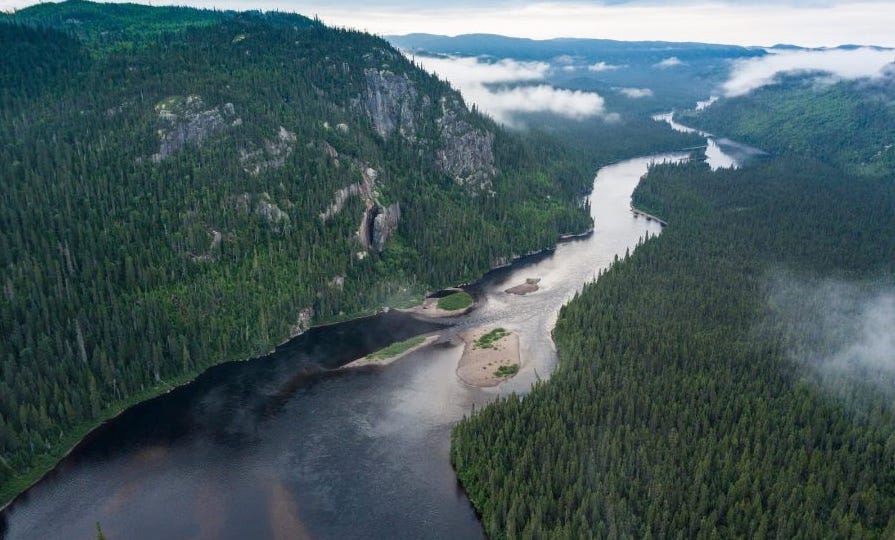Don't be fooled — this Canadian river is really a person
Increasingly, natural landmarks and animals are being given the legal rights of humans.

(A native of England, Matthew Diebel is a veteran journalist who has worked at NBC News, Time, USA Today and News Corp., among other organizations. Having spent his childhood next to one of the world's fastest bodies of water, he is particularly interested in tidal energy.)
Here at Callaway Climate Insights — as per our May 12 Dublin Climate Summit — we’re always glad to help bring people together.
So, Mutuhekau Shipu, we’re delighted to introduce TsuladxW. We’re sure you guys will get along great.
Except neither are human. Mutuhekau Shipu is a 120-mile-long waterway in Quebec, Canada, otherwise known as the Magpie River. Meanwhile, TsuladxW, as we reported last month, is a Chinook salmon found in Washington state.
What they do have in common, though, is that both have been declared as humans for legal purposes. In the case of the Magpie River/Mutuhekau Shipu, it now has nine rights, among them the right to flow, maintain biodiversity and be free from pollution.
And to sue.
As National Geographic reports, it’s not the first time a river has received legal rights. In recent years, several waterways — from New Zealand’s Whanganui to the Klamath River in Oregon and California — have been given personhood. And in 2018, Colombia’s Supreme Court granted legal rights to its portion the Amazon — the world’s largest river — as well as to the 470-mile Atrato River, which flows south to north into the Caribbean.
Much of this movement has been instigated by indigenous people. “I see the river and the trees as ancestors,” Uapukun Mestokosho, a member of the Mutehekau Shipu Alliance, the committee that advocated for the river’s legal rights, told National Geographic. “They’ve been here long before we have and deserve the right to live.”
And in Washington state, Sauk-Suiattle tribe member and lawyer Jack Fiander is suing on behalf of the salmon known locally as TsuladxW. “People need to know that these are our laws and if you come into our territory and do things that affect us you should be familiar with our laws and show us respect,” he told The Guardian. “These tribal beliefs shouldn’t be ridiculed. They’re based on ancestral knowledge that shouldn’t be discounted.”
As a Japanese proverb says, “The lawyer will extend the frontiers of a fight.”
